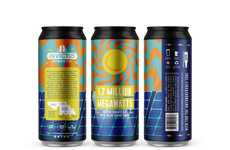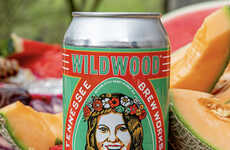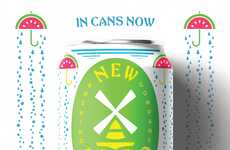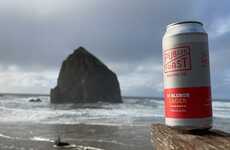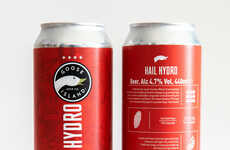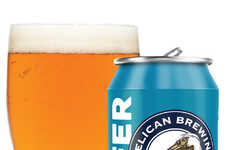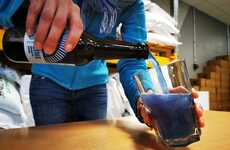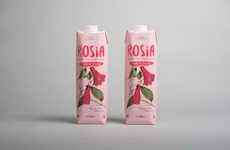
Amsterdam's 'Hemelswater' Rainwater Beer is Refreshing and Crisp
Mary Van Puymbroeck — July 27, 2017 — Eco
References: deprael.nl & theguardian
This June has been the wettest in recorded history in some parts of the Netherlands but that has only encouraged production of this rainwater beer.
Entrepreneurs in Amsterdam decided to take the city's rainwater and turn it into beer. Called 'Hemelswater: Code Blond,' the beer's co-founder Joris Hoebe describes the beer as a "bitter blond, like an IPA." He also says the beer is "fruity and soft." Curious guests recently ventured to the De Prael brewery in Amsterdam for a tasting of the rainwater beer.
Rainwater is collected at two huge tanks on the campus of the Amsterdam University of Applied Sciences. To promote cleanliness, the collected rainwater is ultra-filtered. Hoebe says that the rainwater may even be more clean than tap water because it is free from drugs and hormones.
Entrepreneurs in Amsterdam decided to take the city's rainwater and turn it into beer. Called 'Hemelswater: Code Blond,' the beer's co-founder Joris Hoebe describes the beer as a "bitter blond, like an IPA." He also says the beer is "fruity and soft." Curious guests recently ventured to the De Prael brewery in Amsterdam for a tasting of the rainwater beer.
Rainwater is collected at two huge tanks on the campus of the Amsterdam University of Applied Sciences. To promote cleanliness, the collected rainwater is ultra-filtered. Hoebe says that the rainwater may even be more clean than tap water because it is free from drugs and hormones.
Trend Themes
1. Rainwater Beer - Turning rainwater into beer presents an innovative solution for utilizing a readily available and sustainable water source.
2. Local Sourcing - Using rainwater collected from the local environment for beer production aligns with the growing demand for locally sourced ingredients and sustainability practices.
3. Alternative Brewing - Exploring alternative water sources like rainwater opens up new possibilities for breweries to differentiate themselves in a competitive market.
Industry Implications
1. Craft Beer - Craft breweries can capitalize on the trend of rainwater beer by offering unique and sustainable brews that resonate with environmentally conscious consumers.
2. Sustainable Agriculture - Rainwater beer production showcases the potential for sustainability in the agriculture industry by minimizing water waste and promoting resource efficiency.
3. Environmental Technology - Companies specializing in water filtration and purification technologies have an opportunity to collaborate with breweries to develop innovative solutions for processing rainwater into high-quality beer.
2.1
Score
Popularity
Activity
Freshness

